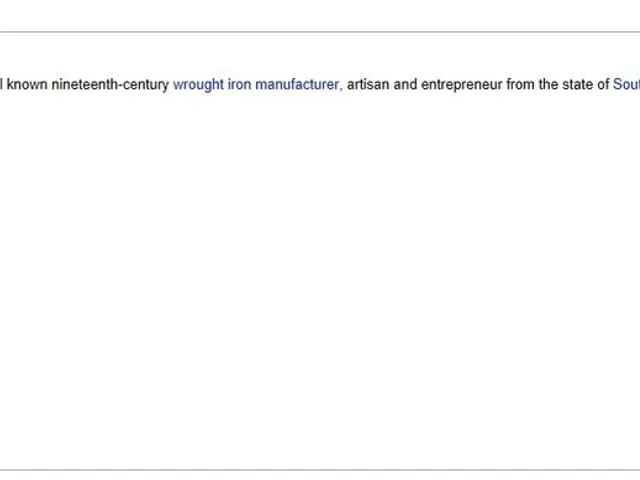Navigating Book Translation Rights Management for Expansion into Fresh Audiences
Unlocking Global Audiences: A Guide to Book Translation Rights and Contracts
Are you an ambitious author yearning to conquer international markets, perhaps even attaining the lofty status of an international bestselling author? To accomplish this, you'll need a book in English or multiple languages, catering to a wider reader base.
Translations are the key to unlocking markets across Europe, Asia, and Latin America, where audiences eagerly devour foreign literature. Dive into the vast literary landscapes of France, Spain, Italy, Mandarin, and Arabic to tap into the enormous demand for bestsellers and genre fiction. The potential rewards? A global audience eagerly awaiting your words.
Navigate the intricacies of book translation rights and contract negotiations with the below-mentioned strategy:
Key Points:
- Translation rights enable you to gain entry to various international markets, broadening your readership. Selling these rights to foreign publishers will propel you into new linguistic territories.
- Foreign rights involve two main aspects: translation rights (the languages in which your book will be translated) and territorial rights (the places where your book can be sold). You can choose to trade these rights together or separately.
- Traditionally published authors rely on their publishers to tackle market research, selling translation rights, and potentially book fairs. Self-published authors, like Jean J. Joachim, hold more control but must conduct local marketing campaigns and build solid local connections to thrive.
Breaking Down Foreign Rights:
Seeing your work translated and appreciated by readers worldwide is a dream. However, foreign rights can be a complex field. Here's what you need to know, broken down:
1. What are Foreign Rights?
Foreign rights grant you the privilege to have your work translated and published in a specific language and territory. This includes books, scripts, plays, or any creative work you've authored. In simpler terms, foreign rights equal translation rights + territory rights.
Who Holds the Foreign Rights?
The ownership of foreign rights depends on the copyright holder, usually the author. However, there are instances where rights may have been transferred to the publisher via contract. If you're a traditionally published author, always check the copyright page of your book or reach out to your publisher directly to confirm privileges.
💡Tip: If traditionally published, always refer to your book's copyright page or directly contact your publisher to learn who wields control over these rights.
2. What are Translation Rights?
To publish your book in a foreign tongue, you must sell its translation rights to foreign publishers. You can do this either independently or with the assistance of your publisher. These rights dictate which languages a publisher can publish your book in and grant them exclusive rights to distribute it in that language.
Who Holds the Translation Rights?
Translators, once they transform the original work into another language, become the copyright holders for that specific language version, assuming they weren't commissioned under a work-for-hire agreement. In such cases, the commissioning company or individual becomes the legal owners of the translated text with all the rights that come with it. Translators, however, retain the copyright for the original text.
3. What are Territorial Rights?
To sell your book in the appropriate markets, negotiate territorial rights: these refer to the specific countries or regions where a publisher has the right to distribute your book. This can include entire continents, single countries, or specific languages spoken in particular areas.
Who Holds the Territorial Rights?
The determination of territorial rights depends on the contract between the author and the publisher (or rights holder). Two primary scenarios are plausible:
- The author retains control over territorial rights, deciding publishing options for each specific territory.
- The publisher acquires territorial rights, holding exclusive publishing rights in a specific territory.
4. Foreign Rights Agents
Foreign rights agents can help you publish your work overseas by finding international publishers to translate, print, and market your books. They possess in-depth knowledge of the international publishing arena and are skilled at selling foreign rights. To locate a foreign rights agent, query agents as you normally would and highlight your interest in translation. Additionally, utilize databases like AgentMatch to seek out agents with international expertise.
If you don't have a foreign rights agent, consider preserving translation rights and handling them independently from other deals.
Paving the Way to Translation
The journey to translation varies depending on your publishing route:
Traditional publishing
1. Market Research
Publishers focus on cultural relevance by assessing international markets to gauge the viability of book translation rights. Analysis of sales data and trends, popular genres, competition, and cultural movements help pinpoint potential trends to capitalize on.
2. Selling Translation Rights
Once market research is complete, translation rights are sold. Publishers negotiate with foreign publishers to persuade them to buy the rights. They might even engage a foreign rights agent or a subagent to handle affairs. Translators are entitled to both copyright and royalties. Their share depends on individual circumstances.
3. Book Fair Negotiations
Major book fairs like Bologna, London, and Frankfurt are bustling hubs for translation rights negotiations. Publishers socialize with their international counterparts, discussing book translation rights, and sealing deals. The foreign publisher handles the translation and publication in their territory if an agreement is reached.
Self-publishing:
Independent authors can tackle the translation process as follows:
1. Approach Publishers Directly
Contact local publishers to discuss book translation rights. This approach offers more control over the translation and publishing process but requires time and networking. International book fairs or conferences may present opportunities for establishing connections with foreign publishers.
2. Employ Translation Platforms
Online translation platforms connect authors with translators and publishers. They often vet translators and can help navigate foreign publishing legalities.
3. Translate the Book Yourself (If You Speak the Target Language)
Leverage your multilingual skills to translate the book yourself, ensuring a high-quality translation by having it reviewed by a native speaker knowledgeable about the target market's cultural nuances. Once translated, self-publish the translated version using established self-publishing platforms.
💡Tip: Whether you choose to self-translate or hire a translator, local marketing campaigns are crucial as a self-published author.
Online writing communities, niche forums, and even book clubs can be powerful tools for self-published authors. Many online communities cater to specific genres or languages. This enables you to target potential readers and translators directly in your chosen market. Engage with these communities, offer translated excerpts, and nurture relationships with those who may help spread your work.
- To broaden your reach in the fashion-and-beauty industry, you might consider translating your book into various languages to capture the attention of audiences worldwide, as you strive to become an internationally renowned author.
- If you're an author aspiring to break into the lifestyle market, familiarize yourself with the intricacies of foreign rights and translation contracts, as understanding these aspects can help you navigate the publishing landscape and tap into lucrative markets for your books in far-reaching territories, such as Europe, Asia, or Latin America.







